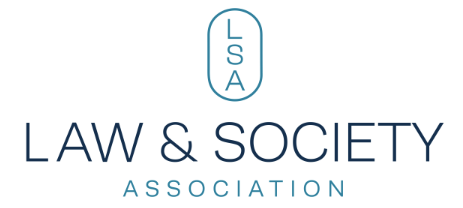CRN 28- New Legal Realism
Schedule of Events
Panel 1: Anthropologists Among Lawyers
(Thursday, May 27 at 11:00 a.m. Central)
This professional development session (cosponsored with CRN 3 – Ethnography, Law and Society) considers the special opportunities and challenges of conducting sociologically (and specifically, anthropologically) informed research and teaching within a professional school setting. The participants are mostly pre-tenure faculty in law schools or business schools who have conducted extensive fieldwork and who continue to engage with both anthropological and legal audiences. The session will provide a forum to identify issues of common interest along pedagogical, theoretical, and administrative axes. For example, how do we reconcile the timelines and requirements of extended qualitative research with legal publishing cycles? And is it possible to develop a coherent writing style across law review and peer review formats? These are just some of the questions animating this professional development session.
Chair: Deepa Das Acevedo, University of Alabama School of Law
Panel 2: New Books in the Field
(Thursday, May 27 at 1:00 p.m. Central)
In this panel (cosponsored with CRN 8 – Labor Rights), scholars will share recent books that take an NLR approach to a variety of topics.
- Deepa Das Acevedo, Beyond the Algorithm: Qualitative Insights for Gig Work Regulation, Cambridge University Press, 2020
- Sara Hungler, The Dual Nature of Employee Involvement, L’Harmattan, Paris, 2020
- Ann C. McGinley and Nicole Buonocore Porter, Feminist Judgments: Rewritten Employment Discrimination Cases, Cambridge University Press, 2020
- Xóchitl Bada and Shannon Gleeson (eds.), Accountability Across Borders: Migrant Rights in North America, University of Texas Press, 2019
- Michael W. McCann with George I. Lovell, Union by Law: Filipino American Labor Activists, Rights Radicalism, and Racial Capitalism, University of Chicago Press, 2020
- Sarah Esther Lageson, Digital Punishment: Privacy, Stigma, and the Harms of Data-Driven Criminal Justice, Oxford University Press, 2020
Chair: Rebecca Zietlow, University of Toledo
Panel 3: Legal Education After Covid-19: Realist Approaches
(Friday, May 28 at 11:00 a.m. Central)
The Covid-19 pandemic has forced law schools to alter many of their methods for content delivery, assessment, and professionalization. For years, legal education has already struggled to balance the goals of high-quality education and access to the profession. Making both more challenging, the pandemic renews longstanding questions for students, faculty, administrators, and those who study them. This professional development roundtable (cosponsored with CRN 19 – Legal Education) asks what lessons have emerged, and what legal education should look like after the pandemic. Its members reflect deep commitments to empirically-grounded and theoretically-informed research on institutions, pedagogy, professionalism, and social inequality.
Chair: Riaz Tejani, University of Redlands
Panel 4: Language, Audience, and the Law
(Friday, May 28 at 1:00 p.m. Central)
Legal actors communicate with various audiences, including other legal actors and litigants, but also the media and the larger public. In doing so, they help to determine how issues are understood, reveal biases, motivations, and intentions, and can shape legal outcomes and social movements. Focusing on topics ranging from genocide to campaign finance reform to Black Lives Matter, this panel considers the implications of language for the development, use, meaning, and consequences of law.
Chair: Emily Taylor Poppe, UCI Law
Panel 5: Political Theory, Law and Governance
(Saturday, May 29 at 1:00 p.m. Central)
This panel considers the legitimacy of legal theories, institutions, and arguments in light of various real-world challenges. Participants consider how actors—ranging from lawyers to university presidents to national presidents—not only interpret, but create law, and challenge legal assumptions and arguments that underlie their behavior.
Chair: Emily Taylor Poppe, UCI Law
Panel 6: New Legal Realism Revisits the Classics for First-Wave Realism (Saturday, May 29 at 3:00 p.m. Central)
This roundtable will discuss the continued relevancy and importance of first wave legal realism to the study of law and society. The past two decades have seen a resurgence of the realist hypothesis in sociolegal scholarship, forming a body of thought that has come to be known as New Legal Realism. This scholarship has adopted the ethos of the original realism and expanded its inquiry. In doing so, it has considered first-wave realism as a whole rather than engaging with the work of individual realists. This panel discusses what the work of first-wave jurists – including Frank, Llewellyn, Mentschikoff, and Oliphant – has to offer New Legal Realists for understanding our contemporary legal society.
Chair: Adam Foster, University of Hawaii-Manoa
Panel 7: New Legal Realism: Evaluating the Past, Present, and Future (Saturday, May 29 at 5:00 p.m. Central)
The new legal realist movement focuses explicitly on supporting efforts to translate social science into legal scholarship, while also encouraging a broader understanding of legal logic that is different from the logic governing empirical research. This roundtable focuses on the most recent edited volume that tries to move the New Legal Realism movement forward: Research Handbook on Modern Legal Realism. Authors from the book discuss their contributions, the NLR movement more broadly, achievements and challenges ahead, and new directions the New Legal Realism should take in the next decade.
Chair: Shauhin Talesh, UCI Law
Panel 8: Race, Rankings, and the USNWR Scholarship Index
(Saturday, May 29 at 5:00pm)
For some time, scholars have tracked and documented the negative impacts of the general USNWR ranking of law schools on racial diversity. Now the USNWR is issuing a separate ranking of scholarship that some have warned is likely to have even more, similarly negative impacts on inclusion within the legal academy. In this panel, scholars discuss the lack of objectivity that is implicitly incorporated into the new scholarly ranking, along with its empirical failings and racial biases. Panel organizers will also give attendees the most recent information they’ve obtained on how scholars can work on recognition for scholarship that might be missed in the new ranking.
Chair: Aaron Taylor, AccessLex

